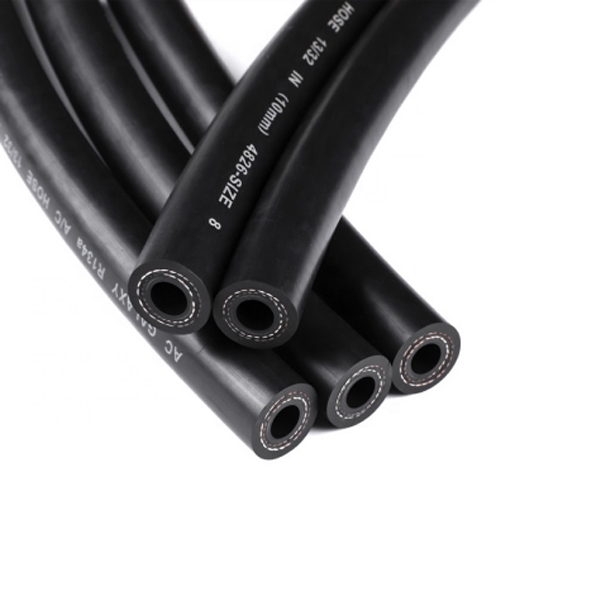flexible oil hose
Nov . 14, 2024 08:54 Back to list
flexible oil hose
The Versatility and Importance of Flexible Oil Hoses
In the rapidly evolving world of industrial applications, the use of flexible oil hoses has become indispensable. These hoses are designed to transport various types of oil, including petroleum products, lubricants, and other hydraulic fluids, safely and efficiently. Their versatility makes them suitable for a wide range of applications, from automotive to aviation, and even in manufacturing and construction industries. In this article, we will explore the features, advantages, and common uses of flexible oil hoses, highlighting their critical role in modern operations.
Features of Flexible Oil Hoses
Flexible oil hoses are constructed from a variety of materials designed to withstand the harsh conditions often associated with oil transportation. Common materials include rubber, thermoplastic elastomers, and reinforced synthetic compounds, which provide strength and durability. These hoses typically feature a multi-layer design to prevent leaks and resist abrasion, ensuring a longer service life.
One of the standout features of flexible oil hoses is their ability to bend and flex without compromising the flow of oil. This is crucial in applications where space is limited or where hoses need to navigate around machinery and equipment. The flexibility reduces the risk of kinking, which can lead to blockages and potential damage to the hose.
Moreover, many flexible oil hoses are designed to withstand high temperatures and pressures, making them suitable for high-performance applications. They are often tested to meet stringent industry standards, which guarantees their reliability and safety in transporting oil.
Advantages of Flexible Oil Hoses
The advantages of using flexible oil hoses are numerous
. Firstly, their flexibility allows for ease of installation, reducing labor time and the need for additional fittings. Operators can quickly and efficiently route hoses without being constrained by rigid pipes, thus optimizing workflow in any operational setting.flexible oil hose

Additionally, flexible oil hoses are lighter than traditional rigid piping systems, which simplifies handling and reduces installation costs. Their lightweight nature also means that they exert less stress on equipment, thereby extending the lifespan of both the hose and the machinery involved.
A further advantage is their resistance to environmental factors. When transporting oil, exposure to chemicals, UV rays, and extreme weather conditions can lead to deterioration. However, flexible oil hoses are engineered to endure these challenges, ensuring that oil is transported safely without leakages or contamination.
Common Applications
Flexible oil hoses find applications in various industries. In the automotive sector, they are extensively used in fuel systems, oil cooling systems, and hydraulic brake systems. Their adaptability allows car manufacturers and repair shops to utilize them in multiple vehicle models, ensuring that they can meet diverse client needs.
In aviation, flexible oil hoses are vital in fuel delivery systems, ensuring the safe transport of aviation fuel. Their resistance to high pressures and temperatures makes them an ideal choice for aircraft components.
The manufacturing and construction industries also rely on flexible oil hoses for hydraulic applications. Machines often require hydraulic fluids for operation, and these hoses navigate through tight spaces, ensuring that machinery functions efficiently.
Conclusion
In conclusion, flexible oil hoses play a pivotal role in various industrial applications. Their design caters to the need for flexibility while maintaining strength and durability, enabling safe and efficient oil transport. With their numerous advantages, such as ease of installation, lightweight construction, and environmental resistance, flexible oil hoses are an essential component in modern operations. As industries continue to evolve, the importance of these hoses will undoubtedly grow, cementing their place in the future of oil transportation and beyond. Thus, investing in high-quality flexible oil hoses is not only a measure of safety but also a commitment to operational efficiency and reliability.
